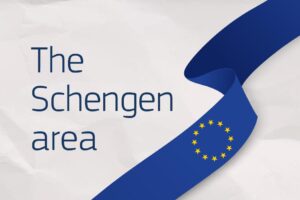
Ukrainian one-dollar store chain Aurora has opened 33 stores in the Romanian market in the first year since entering the market and generated about EUR10 million in revenue, said Taras Panasenko, CEO of the chain.
“For this year, we have a plan of EUR40 million in revenue in Romania, which means to grow four times,” he said at the Exporters Summit organized by Forbes Ukraine in Kyiv.
According to anInterfax-Ukraine correspondent, Panasenko added that the number of checks has reached 1 million, and 98% of buyers are local.
As reported, Aurora invested UAH 2.5 billion in the development of its network in Ukraine in 2024. Last year, the chain’s revenue increased by 42.5% to UAH 38.5 billion (excluding VAT).
“Aurora was founded in 2011 by Lev Zhidenko, Taras Panasenko and Lesya Klymenko. At the end of 2024, the chain had more than 1600 stores in Ukraine and 30 in Romania. The company employs about 14 thousand people. The retail chain is headquartered in Poltava.
According to Forbes, citing Panasenko, Aurora plans to open 340-350 new stores in Ukraine in 2025.
“We want to go public, but we are waiting for the right time for retail companies. Now, for example, Polish Żabka has launched an IPO, and it was successful. However, the main factor that will have a positive impact on our IPO is the end of martial law in Ukraine,” the CEO also said.
According to him, the company does not plan to enter new markets yet, but will focus on the development of Romanian stores. “But we are looking at Uzbekistan, Moldova, Bulgaria,” Forbes quoted Panasenko as saying.

Pro-Russian presidential candidate Călin Georgescu was detained on Wednesday.
“Călin Georgescu was going to submit his new candidacy for the presidency. About 30 minutes ago, the system stopped him on the road and took him to a hearing at the prosecutor’s office! Where is democracy, where are the partners who are supposed to defend democracy?” – reads a message from his communications team posted on Georgescu’s personal Facebook page on Wednesday.
Earlier in the day, he reported massive searches of his supporters, calling the current government a “communist-bolshevik system,” and called on everyone to gather for a protest on Victory Square in Bucharest on Saturday, March 1.
As reported, Georgescu became the leader of the first round of elections held in the country on November 24, with 22.94% of voters supporting him. The second place with 19.18% of the vote went to the leader of the liberal progressive party “Union for the Salvation of Romania” Elena Lasconi. However, one of the presidential candidates, Cristian Terges, who is supported by the Romanian National Conservative Party, claimed election fraud. The Romanian Constitutional Court unanimously decided to recount all valid and invalid ballots, and on December 6, unanimously decided to cancel the results of the first round of the presidential election two days before the second round. The election was canceled against the backdrop of declassified information from the intelligence services indicating Russian interference in the election.
Later, the ruling coalition in Romania decided on the date of the new presidential elections, which will be held on May 4 and May 18.
Georgescu called Ukraine a “fictitious state” and said that its territories would be divided by neighboring countries. According to him, if elected, he will not allow the continuation of Ukrainian grain exports through Romania and further military aid to Kyiv. He also claimed that Bucharest is not obliged to comply with NATO’s defense spending commitments and questioned the effectiveness of the use of EU funds that have contributed to economic growth and infrastructure development in Romania. Earlier, the Experts Club and Active Group released a video analysis of the most important elections in the world in 2025, for more details, see the video review – https://youtu.be/u1NMbFCCRx0?si=-rc6YHH7EA1pnr7w

Automagistral Pivden SRL (Ukraine) – Precon Transilvania SRL (Romania) has been recognized as the winner of one of three lots for the construction of the Arad-Oradea section of the highway with a project budget of EUR 600 million, the press service of Avtomagistral-Pivden reports.
The Ukrainian Embassy in Romania noted that the victory of the Ukrainian company in one of the largest infrastructure construction tenders is a significant event in terms of strengthening bilateral economic relations between Ukraine and Romania.
“The presence of the largest Ukrainian construction company in Romania will help strengthen the position of Ukrainian business in the EU market, develop joint projects and partnerships between Ukrainian and European companies, and exchange of experience. The EU market is traditionally represented by the world’s leading companies. The victory in the competition with the strongest rivals is evidence of the Romanian customer’s trust in the Ukrainian contractor,” the embassy said in a Facebook post.
In total, the four-lane Arad-Oradea highway will have a total length of 120.47 km and will provide a connection to the Romanian-Hungarian border. The lot won by an association of Ukrainian and Romanian companies includes a 47.07 km section, to which a connecting road to the Arad West industrial zone (2.9 km) is added. The project provides for 29 bridges with a total length of 2.5 km, six traffic interchanges, four sites for large vehicles, and two road repair stations (for highway maintenance).
“The victory of Avtomagistral-Pivden is evidence that our country is able to successfully enter the European market with high-tech services. Our company’s participation in one of the largest infrastructure projects in the EU will be important for dozens of other Ukrainian companies that supply materials and services,” the release says.
Avtomagistral-Pivden LLC has been on the market since 2004. It designs and builds highways, bridges, interchanges, airfield complexes, and hydraulic structures. The company’s owner is listed in Opendatabot as Oleksandr Boyko. According to the financial results for 2023, the company’s net profit amounted to UAH 624.9 million, and revenue was UAH 8.215 billion.
CONSTRUCTION, HIGHWAY, ROMANIA, TENDER, Автомагістраль-Південь

The ruling coalition in Romania has decided on the date of the new presidential elections, which will be held in Romania on May 4 and May 18, Reuters reports, citing sources in the Liberal Party of Romania.
According to the coalition parties, they have agreed to support a single presidential candidate to prevent the far-right from winning, and today their candidate is Crin Antonescu, the former leader of the Liberals, but experts suggest that another candidate from the ruling coalition may be nominated.
According to Politico, despite the cancellation of the results of the previous elections, pro-Russian candidate Kelin Georgescu remains popular in Romania, as evidenced by a poll conducted by Digi 24 at the request of Bucharest Mayor Nicusor Dan, who also plans to run for president of Romania as an independent candidate in the re-election. The poll showed that at least 40 percent of Romanians plan to vote for Dănăsca, Dan told Digi24, without specifying how many people were interviewed.
On Wednesday, Elena Lascone, the leader of the liberal progressive party “Union for the Salvation of Romania”, which came in second in the previous elections with 19.18% of the vote, promised to run again.
As reported, in December 2024, the Romanian Supreme Court overturned the results of the first round of the November 24 presidential election due to allegations of foreign interference after the victory of pro-Russian candidate Kelin Georgescu.
Earlier, the Experts Club think tank released a video about the most important elections in the world, the video is available here – https://youtu.be/73DB0GbJy4M?si=zWf7UqPASklCy5nr

Romania and Bulgaria joined the Schengen area on Wednesday, and starting January 1, 2025, border controls will be abolished on the land borders of these countries with and between the Schengen countries.
“Romania and Bulgaria, welcome to Schengen,” European Parliament President Roberta Mecola wrote on social media on the night of January 1.
“From now on, there will be no more checks when crossing the land borders between Bulgaria or Romania and any Schengen country,” the European Parliament’s social network X reported.
The European Parliament recalled that border checks for air and sea travel were canceled back in March 2024.
The European Commission’s Directorate-General for Migration and Home Affairs called 2025 a historic year for Romania, Bulgaria and its people. “Full accession to the Schengen area is in line with European promises and legitimate expectations. This marks an important milestone in our history,” the statement said.
As reported in the social media of Hungary’s X presidency of the EU Council on December 12, the interior ministers “have just decided to abolish control of internal land borders with and between Bulgaria and Romania as of January 1, 2025.” Austria had previously opposed this because of the high level of illegal migration in Bulgaria and Romania, but later lifted its veto.
The Schengen area is a European space where border controls at the internal border have been abolished. The accession of countries will promote travel, trade and tourism.
Source: http://relocation.com.ua/rumuniia-ta-bolhariia-ofitsijno-vstupyly-do-shenhenskoi-zony/

Bulgaria’s Minister of Agriculture and Food Georgi Takhov asked the European Commission to take safeguard measures against honey imports from Ukraine at a meeting of the EU Agriculture and Fisheries Council, and his request was supported by a representative of Romania, the Bulgarian Ministry of Agriculture reported.
According to Takhov, imports of Ukrainian honey make it difficult to sell local products. The fact is that significant volumes of Ukrainian honey entering the European market at very low prices put a lot of pressure on Bulgarian honey prices.
“In addition to the many challenges facing the industry, over the past three years it has also faced competition from imports from Ukraine. The volume of honey imported from Ukraine to our country from January to October 2024 increased by more than 30% compared to the same period last year,” Takhov emphasized and added that the high level of imports from Ukraine puts Bulgarian producers in a difficult situation.
At a press conference following the meeting of EU agriculture ministers, Hungarian Agriculture Minister Istvan Nagy explained that Bulgaria and Romania demanded safeguard measures for imports of honey from Ukraine to the European Union, as the duty-free quota set in the autonomous trade liberalization has been exhausted, and “the duty creates problems in domestic markets burdened by imports.”
“The measure – the so-called ATM regulation – has been exhausted, but the amount of honey coming from Ukraine is still subject to duty, which also creates problems in domestic markets that are burdened by imports,” the Hungarian Ministry of Agriculture quoted him as saying.
Nagy emphasized that effective measures should be taken to prevent counterfeit honey from entering the EU market, for example, by labeling and separating natural and non-natural honey. He also believes that it is necessary to compensate for the “emerging competitive disadvantages” and to further support the beekeeping sector.
As reported, on August 20, the European Commission imposed tariff quotas on Ukrainian honey due to the excess of quota-free volumes of its supplies to the European market. Imports of honey from Ukraine from the beginning of 2024 to August exceeded the quota of 44.418 thousand tons. Additional imports are subject to most favored nation (MFN) duties. In particular, a new tariff quota will be introduced from January 1, 2025, until June 5, 2025, which corresponds to 5/12 of the threshold set for the emergency braking. For honey, the new quota will amount to 18,507 tons.
From June 2, 2024 to June 5, 2025, the European Commission introduced quotas for the supply of eggs and sugar to the European Union. For eggs, the new quota is set at 9,662 thousand tons, and for sugar – at 109,44 thousand tons.
On May 13, 2024, the Council of the European Union approved the extension of temporary trade liberalization measures for Ukraine for another year, until June 5, 2025. At the same time, it was envisaged to apply an emergency braking mechanism for particularly sensitive agricultural products, including sugar, eggs, poultry, oats, corn, honey, and cereals, in case imports of these products in 2024 exceed the average volumes recorded in the second half of 2021 and during 2022 and 2023. Similar emergency braking measures may be applied in 2025 if, in the period from January 1 to June 5, 2025, the volume of Ukrainian exports exceeds 5/12 of the quota set for 2024.
According to Art. 4(7) of the Regulation on autonomous trade measures applicable to Ukrainian products, Ukraine will be able to supply to the EU from June 6, 2024 to June 5, 2025 without paying any duty 57,101 thousand tons of poultry meat, 9,662 thousand tons of eggs, 109,439 thousand tons of sugar, 18,507 thousand tons of honey, 4.648 million tons of corn, 1,017 thousand tons of oats, 8,603 thousand tons of cereals.